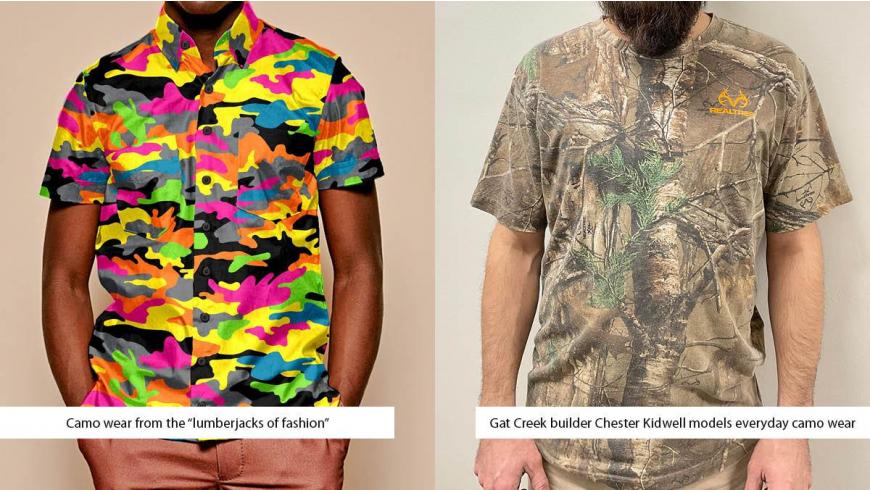Sustainably Made-To-Order Products Are More Fashionable And Less Wasteful

A recent Wall Street Journal article caught our eye for its coverage of an emerging trend in fashion: made to order goods.
Gat Creek has been handcrafting each piece of furniture when our customer orders it since, well, forever. But for the fashion industry — at least some small corners of it — to pursue this model is a significant shift.
There’s no other way to say it; fashion has historically been among the most wasteful of industries. Producing many times more garments than they can sell in a season, deeply discounting the unsold goods (which harms the brand’s value) and filling the landfills with what is left over. Sad to say there are a number of furniture companies that mirror that model.
For furniture companies manufacturing overseas, maximizing profits means using cheap labor and lesser quality materials, guessing consumer tastes well into the future, shipping many container loads, warehousing the stock and waiting for buyers. Inevitably, the goods that go unsold end up in the landfill to make room for the next wave of shipping containers. That model was always a no-go for Gat Creek.
“It is what we have long been about, building to order and still being competitive with international businesses,” Gat Caperton said. “Our customer wants to pay for beautiful wood, finish and craftsmanship. So that’s what we invest in and get rid of everything else.”
Like Gat Creek, JCRT, one of the fashion brands cited in The Journal article, feels a deep obligation to responsible stewardship of resources and to bringing the production of their goods as close to zero waste as possible. We feel a kinship to what the men behind JCRT, Jeffrey Costello and Robert Tagliapietra, stand for, not to mention the brand personality they have created and their fashion sense. Dubbed the “lumberjacks of fashion”, the duo’s line includes unexpected and colorful camouflage patterns.
Responsible manufacturing with lumberjacks and camo shirts thrown in? As a West Virginia company, it feels like Gat Creek is cut from the same cloth.
